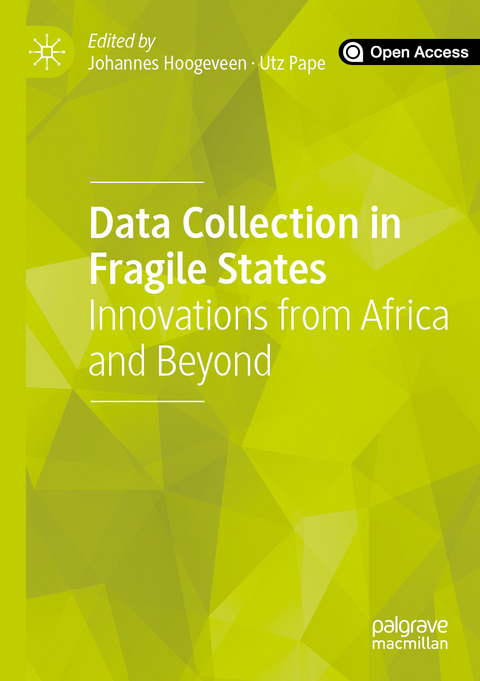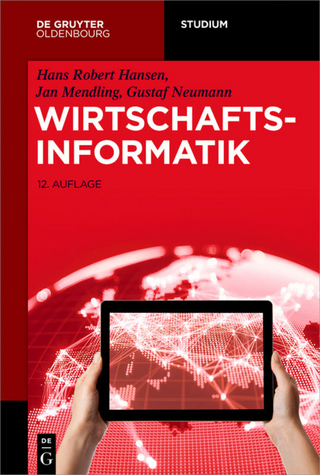
Data Collection in Fragile States
Springer International Publishing (Verlag)
978-3-030-25122-2 (ISBN)
'This open access book addresses an urgent issue on which little organized information exists. It reflects experience in Africa but is highly relevant to other fragile states as well.'
-Constantine Michalopoulos, John Hopkins University, USA and former Director of Economic Policy and Co-ordination at the World Bank
Looking at innovations in Africa from mobile phone surveys monitoring the Ebola crisis, to tracking displaced people in Mali, this collection highlights the challenges in data collection researchers face and how they can be overcome.
lt;p>Johannes Hoogeveen is Lead Economist in the Poverty and Equity Global Practice at the World Bank. He combines analytical and strategic work with the implementation of lending operations, and has published academic papers on various topics of relevance to this book including mobile phone surveys, statistics governance, displacement, and the welfare consequences of crises.
Utz Pape is Senior Economist in the Poverty and Equity Global Practice at the World Bank. He leads teams to design and implement lending projects to improve national statistical systems and to prepare analytical poverty work including poverty assessments, poverty impact studies, and Systematic Country Diagnostics. His work experience in post-conflict countries contributes to his research agenda including the design of methodologies for poverty measurement in fragile settings.
Chapter 1: Fragility and innovations in data collection; Johannes Hoogeveen and Utz Pape.- Part I: Innovations in data collection.- Chapter 2: Monitoring the Ebola crisis using mobile phone surveys; Alvin Etang and Kristen Himelein.- Chapter 3: Rapid Emergency Response Survey; Utz Pape.- Chapter 4: Tracking displaced people in Mali; Alvin Etang and Johannes Hoogeveen.- Chapter 5: Locally recruited, resident and enumerators for continuous monitoring; Andre-Marie Taptué and Johannes Hoogeveen.- Chapter 6: A local development index for the Central African Republic and Mali; Mohamed Coulibaly, Johannes Hoogeveen, Roy Katayama and Gervais Chamberlin Yama.- Part II: Methodologically innovations.- Chapter 7: Geo-spatial sampling; Stephanie Eckman and Kristen Himelein.- Chapter 8: Sampling in chaotic environments; Ana I. Aguilera, Nandini Krishnan, Juan Munoz, Flavio Russo Riva, Dhiraj Sharma and Tara Vishwanath.- Chapter 9: Rapid consumption surveys; Utz Pape and Johan Mistiaen.- Chapter 10: Studying sensitive topics in fragile contexts; Mohammad R Isaqzadeh, Saad Gulzar and Jacob N. Shapiro.- Chapter 11: Eliciting accurate consumption responses from vulnerable populations; Lennart Kaplan, Utz Johann Pape and James Walsh.- Part III: Other innovations.- Chapter 12: Using video testimonials to give a voice to the poor; Utz Pape.- Chapter 13: Iterative beneficiary monitoring of World Bank projects; Johannes Hoogeveen and Andre-Marie Taptué.- Chapter 14: Concluding remarks: Data Collection in FCV environments; Johannes Hoogeveen and Utz Pape.
| Erscheinungsdatum | 17.09.2020 |
|---|---|
| Zusatzinfo | XXXI, 243 p. 58 illus., 52 illus. in color. |
| Verlagsort | Cham |
| Sprache | englisch |
| Maße | 148 x 210 mm |
| Gewicht | 366 g |
| Themenwelt | Sozialwissenschaften ► Soziologie |
| Wirtschaft ► Betriebswirtschaft / Management ► Wirtschaftsinformatik | |
| Wirtschaft ► Volkswirtschaftslehre | |
| Schlagworte | African economics • African innovations • Central African Republic • data collection • Development Economics • Displaced People • Economic Development • Fragile States • Geo-spatial sampling • Mobile phone surveys • open access • Rapid consumption surveys • Rapid emergency response survey • vulnerable populations |
| ISBN-10 | 3-030-25122-5 / 3030251225 |
| ISBN-13 | 978-3-030-25122-2 / 9783030251222 |
| Zustand | Neuware |
| Haben Sie eine Frage zum Produkt? |
aus dem Bereich


